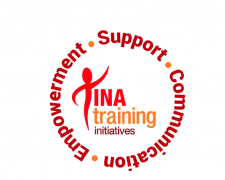Aims
- To understand how epilepsy might affect people
- To have an understanding of individual management guidelines
Learning Outcomes
By the end of the session participants will be able to:
Outline the ILAE [International League against Epilepsy] classification of seizure types and description of seizures
Describe an ‘Epilepsy Pathway’
Explore the consequences of social stigma
Demonstrate safe and appropriate management of a person during and after a seizure
Outline the carers’ responsibilities during the client’s seizure
To know about a range of anti-epileptic medications and their side effects including Oromucosal Midazolam
Demonstrate raised awareness of different types of seizures, causes and treatment
To be able to recognise and establish good care practice in the administration of Oromucosal Midazolam and record keeping
Understand the legal responsibilities of staff including risk assessments and epilepsy guidelines
Programme
Domestics, Aims and Learning Outcomes, Ground rules, Introductions
What is epilepsy?
Quiz
Causes of epilepsy/Diagnosing epilepsy
Statistics
DVD – ‘Epileptic Seizures’
Identifying Types of seizures
Triggers
Epilepsy Care Pathway
Nick - Case study
Recording
First aid
Treatment with anti-epileptic medication [AED’s] and side effects
Oromucosal Midazoalm - its uses for epilepsy and other conditions
Alternative treatments
Rights vs Risks
SUDEP
Summary
For further information please contact:
Tina Thordal – 07815 064710 or e-mail tina@tinatraining.co.uk
Bill Horrocks – 07929 035297 or e-mail bill@tinatraining.co.uk
